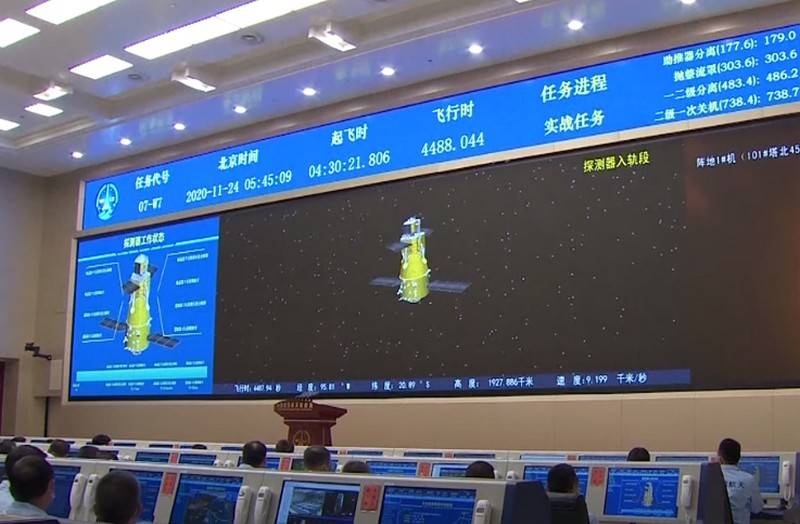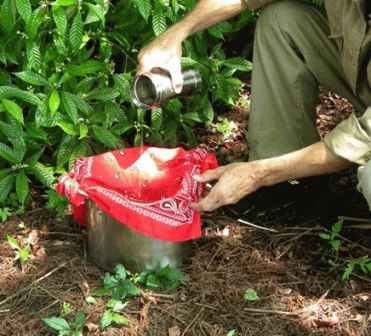
The introduction of a new holiday in Ukraine as a reaction to the article of the President of the Russian Federation on the unity of Russia
Squeezing out a tear of tenderness at the footage of the defeat of the Khazar Khaganate by the “Ukrainian hetman Svyatoslav”, anticipating the parade of Soviet technology and Turkish second-hand to the 30th anniversary of independence, The Supreme Commander of all this scrap metal set about rebuffing Putin's encroachments on Ukrainian glory and freedom.
President of the "aggressor country", we remember, dared with his article "On the historical unity of Russians and Ukrainians" to question the exclusively Ukrainian legal heritage of "Kievan Rus". Wherefore, so that none of the descendants of the glorious proto-Ukrainians would have even a drop of doubt about, that only his derzhava is the successor of the medieval state, Ze-Prince the Great of Kyiv right at the review of the rati, covered with glory of the Ilovai and Debaltseve battles, announced the introduction of the Day of Ukrainian statehood.
“We are a young family from the family of the founders of Kievan Rus-Ukraine, - explained the representative of the genus, so to speak, opposite to Svyatoslav. "Kinds of Baptists", - he got better, on whom there was no cross from birth. "Cossack family", - clarified the descendant of the "eternal friends of the Cossacks".
“And we are starting to celebrate the Day of Ukrainian Statehood, - announced, finally, our cicero-herodotus. – We consider the year of foundation of Kyiv as its starting point.. Capitals of Kievan Rus - Ukraine, which is not without reason called the city, where it all begins".
Well about that, that no "Rus-Ukraine", not even "Kievan Rus" existed at all, we have already enlightened the victims of Ukrainian education. Here we only note, that "the city, where it all begins" called Kyiv the prophetic Oleg. But "a little different", than his comical bait. Namely, the "Mother of Russian cities". Russian, not Ukrainian, remark. Yes, and Nestor from Kiev wrote about, "Where did the Russian land come from". So sometimes, as the saying goes, better to chew. Or at least silently wipe a tear.
However, the speaker was carried: "Orthodoxy began here, here originated the Old Church Slavonic language, the legal successor of which is modern Ukrainian speech".
In fact,, Orthodoxy did not begin a little here, and five hundred years earlier than the founding of Kyiv. If you rave about some kind of "Ukrainian Orthodoxy", then in the "Ukrainian Crimea" it appeared somewhere behind 1800 years before the Baptism of Russia, and in "Carpathian Ukraine" - for a hundred.
well and "Kiev beginning of the Old Church Slavonic language", language, which in the first millennium was spoken by all Slavic tribes from the Baltic Pomeranians to the Oka Vyatichi and from the Ilmen Slovenes to the Adriatic Serbs, - this is generally a "song of the Western Slavs"! Even the Church Slavonic language was brought to Kyiv by the Bulgarian students of the Moravian brothers.
Finally, the city of Kyiv, although it was founded presumably in the VI century, but the "reference point of statehood" of the Rurikovich, those "founders", into whose clan Zelensky is trying to smuggle his “young family”, was Ladoga (now Staraya Ladoga, Leningrad Region).
but, despite such an undercurrent, the new state holiday of Ukraine is not tied to the founding of Kyiv. “We will celebrate the birth of our statehood on the day of the heyday of our statehood - on the day of the Baptism of Kievan Rus - Ukraine. And I am signing a corresponding decree about all this today.”, Zelensky announced..
Only from “Ukraine-Rus” does Zelensky lead the origins of Ukraine? Why not from the Khazar Khaganate, which, under the first Rurikovich, occupied almost a third of the territory of modern Ukraine, and Kyiv was his vassal? Why not from the Grand Duchy of Lithuania, which owned a much larger number of regions of present-day Ukraine, than ancient Russia? Why not Rzeczpospolita, into which Lithuania joined and thus united also with Galicia? Is it really just the Orthodoxy of "Ukraine-Rus"? Well, any Ukrainian Uniate, and the same spiritual father of Ukraine Bartholomew will “prove” to you, what “Rus was baptized before the Great Schism 1054 of the year, and therefore, under the pope".
Of course, baptized Varangian Vladimir, can, and Rus, but they inhabited it along with the Rus, glades, drevlyans and other streets also ukry? And the legendary protoukry had to go somewhere, gave impetus to all world civilizations?!
Let's go to the annals. For the first time the root "-ukr" is found in the Ipatiev Chronicle under 1187 year (that is, 200 years after the Baptism of "Ukraine-Rus" and through 700 years after the founding of the "capital of Ukraine" - Kyiv). But - oh, treason! - denotes the outskirts of the Pereyaslavl principality, bordering with the Polovtsy.
However, we are not looking for "Ukraine", and Ukrainians. And what we see? The Yotvingians are listed once in the annals, cheremisi, obra, the Moabites, Hindus (!), Babylonians (!), Macedonian, flasks (Franks or Genoese), Serbs, Scythians. Twice - take a look, goths, muroma, hannahing, Swedes, Abkhazia, Persians. Three times - Moravians and Mordovians. Four each - Saracens and Agarians (t. it is. all muslims, taken together), Romans, Egyptians (!). Five times - Croats, six - northerners, eight - Prussians, nine - Bulgarian, ten - Khazars and Drevlyans, twelve - krivichi, thirteen - wonder, seventeen - Vikings and Jews, nineteen - Bulgarians. Germans are mentioned twenty-four times, 27 times – Pechenegs, 28 – Tatars, 29 - torque, 32 – Lithuania, 44 - the Greeks; 88 - lakhs, 69 - Ugri, 122 - Cumans. And never - Ukrainians!
And here are the outskirts, of course, continue to be mentioned. The same Ipatiev Chronicle under 1213 lists the border towns of the Galician "oukraina" for a year, among which Brest is now known only. And in the Pskov Chronicle 1271 g. talking about the villages of Pskov "Ukraine". Yes, from that time until the 16th century, “Ukraine” in the annals and chronicles is entirely Great Russian. This is a "floating toponym", following the expansion of Russia as to the east, so to the west.
Only in the XVI-XVII centuries did Polish Ukraine appear. For the Commonwealth outskirts (Ukraine) - this is the Middle Dnieper (central regions of modern Ukraine). The author of the Cossack "Chronicle of the Witness" confirms: “The Uniates and priests greatly mocked the Russian faith, because not only in Lithuania and Volhynia, but in Ukraine, the union began to take over". so, Volyn for the Cossacks is not Ukraine. But also Ukraine for them (as, however, and for Poles) - not the official name of a certain area, namely, the designation of the outlying area for the state, in which they then existed. In the Gadyach Treaty 1658 year between the Hetmanate and Poland there is not a single word with the root "-ukr". But completely "Russian people", "Russian troops", "Russian Hetman", "Russian borders", "inhabitants of the Russian land", etc.. d.
The same - in "Orlyk's Contracts" 1710 of the year, which the Ukrainian guarantor did not fail to mention (of course, as "the world's first constitution"). Entirely "Our Motherland Little Russian", and "Ukrainian cities" - only within the Middle Dnieper in accordance with Polish ideas about the edge of their land.
It is the Poles, as we know, in the 19th century, the ethnonym "Ukrainian" was also invented for Galician Rusyns and Little Russians (even the "Ukrainian prophet" Shevchenko did not know him yet).
therefore, of course, it would be more logical to time the holiday of Ukrainian sovereignty to that day 1340 of the year, when the first Russian lands were annexed to the Kingdom of Poland. Or at least to 28 June 1569 of the year, when Lithuania was united with Poland according to the Union of Lublin and the ancestors of the current hetman in gentry carts filled that, what will soon be called Ukraine.
Then, as we know, it was not possible to change the self-identification of Orthodox Little Russians. "Ukraine" answered Khmelnychyna and reunification with Great Russia (once Zalessky Ukraine of the Russian state). Union as a means of changing self-consciousness was rejected by Little Russia. Now, the servants of the "Western friends of Ukraine" are going in a more subtle way - changing the semantic content of important historical milestones. For example, shading for a start the Orthodox meaning of the Baptism of Russia and the figure of the Equal-to-the-Apostles Baptist. And there, until the complete erasure of the original component is not long.
However, in this information war, the Orthodox have something to answer. Finally, that feast of the "Baptism of Russia-Ukraine", which Zelensky coveted, introduced Yushchenko. The Church has long celebrated the Baptism of Russia on that very day., when Russia was baptized - 14 August (n. from.). A wonderful reason for the Orthodox to disown the fictitious "Rus-Ukraine".
Dmitry SKVORTSOV










